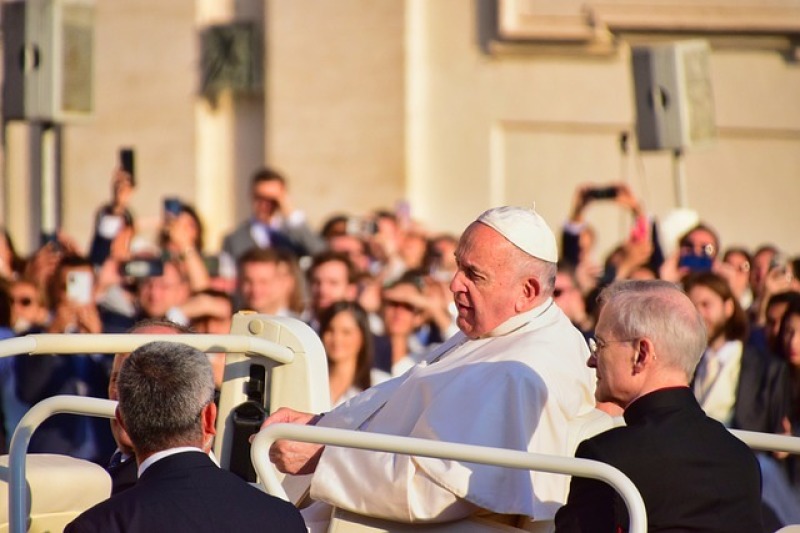
Pope Francis made a historic decision by allowing women to vote in the Synod of Bishops on Synodality. The membership composition has also changed as a result of this drastic transformation, which was made public before the synod’s inauguration in October. Now, between 21 and 25 percent of voting members are not only bishops.
The member of the synod will consist of lay women and men, as well as consecrated women and men, and everyone will be allowed to vote in this new move of revision of the format. This represents a considerable change from the customary rule that only men could vote.
Cardinals Detail Pope Francis’ Historic Shift in Synod Membership and Voting Rights
According to America Magazine, Bishops from around the globe are invited to Rome for the Synod of Bishops, a custom dating back to the Second Vatican Council, to debate various issues. Following these meetings, the bishops cast their votes on specific ideas and offer them to the Pope, who subsequently compiles a document that considers their viewpoints.
The Catholic Church is moving significantly in the direction of greater inclusivity and gender equality as a result of Pope Francis’ historic decision.
Cardinals Mario Grech and Jean-Claude Hollerich stated on April 26 that Pope Francis has decided to give women the ability to vote and to alter the composition of the Synod of Bishops on Synodality. Ten clerics from Institutes of Consecrated Life have been replaced with five women and five men religious, who will have voting rights, according to Cardinal Hollerich. Seventy non-bishop members will replace the auditors, including priests, consecrated women, deacons, and lay believers.
Pope Francis will choose these individuals from a list submitted by worldwide bishops’ conferences and patriarchs of the Eastern Catholic Church. The Pope stressed the importance of including young people and asked that half of the new members be women. Voting rights will be granted to all 70 non-bishop members.
Also Read:Pope Francis Defends John Paul II, Dismisses Unfounded Allegations
Two-Year Canvassing Precedes Historic October Synod Meeting; Cardinals Address Concerns
Following a thorough two-year survey of lay Catholic believers, the Synod of Bishops will gather in October to grant women voting rights and modify the membership. According to The Guardian, input was solicited during this process regarding the church’s mission and how to serve modern Catholics best.
Approximately 21% of the representatives at the synod conference in October will not be bishops, with half of that group being women, according to Cardinal Mario Grech, who is in charge of the synod. Cardinal Grech emphasized that, despite Pope Francis’ call for inclusivity, the majority of the synod would still be made up of bishops, who would continue to have the power to make decisions.
Cardinal Jean-Claude Hollerich declined to give a precise title when asked about the nomenclature used for the synod’s female members. Although synod members have traditionally been referred to as “synodal fathers,” he recommended that the women themselves could choose how they would prefer to be addressed.
In the Catholic Church’s efforts to adjust to the changing demands and expectations of its worldwide society, the subsequent October synod represents a crucial step toward inclusivity.
The latest modifications in synod membership and voting rights announced by Pope Francis were discussed in an interview with BBC World Service’s Newshour program by Vatican correspondent Christopher Lamb of the Catholic news outlet The Tablet. Lamb called the changes “highly significant” and an example of the Pope’s efforts to improve the Catholic Church’s decision-making procedures.
Lamb noted that the changes affecting women are part of a long-running, “unprecedented” conversation about female representation. He did, however, foresee that certain facets of the church would react to Pope Francis’ most recent choice with “significant resistance.”
Related Article: Pope Francis Announces 2024 Argentina Visit, Orders Archbishop Gänswein to Depart Vatican

